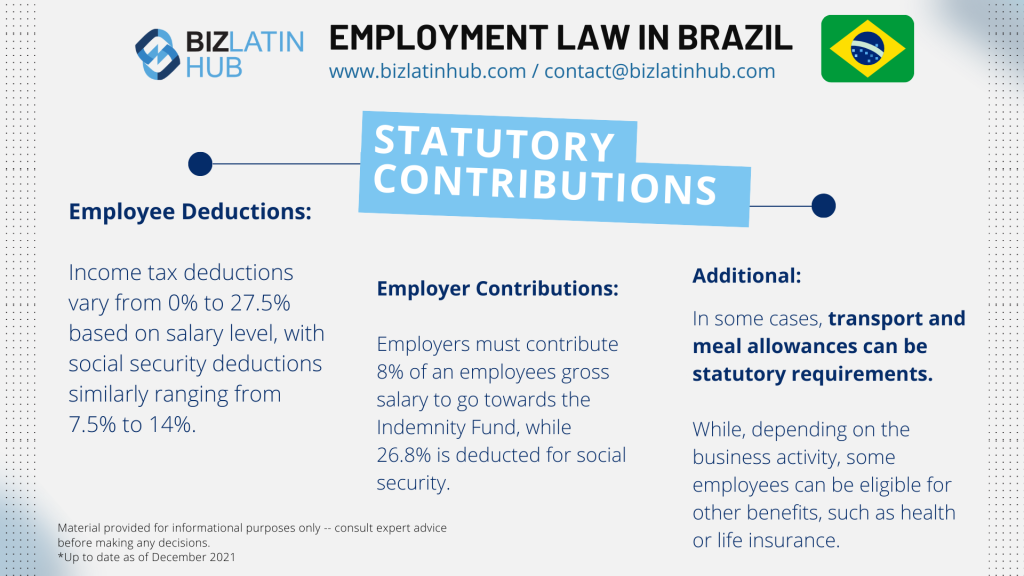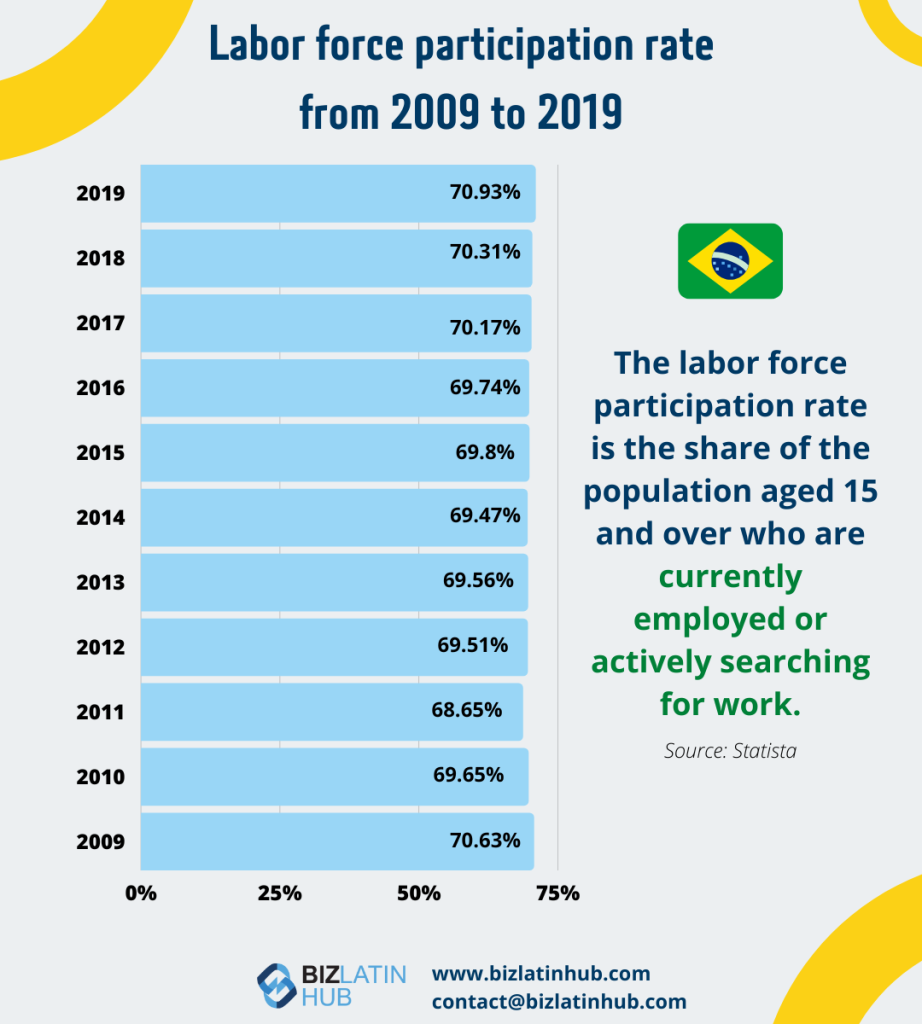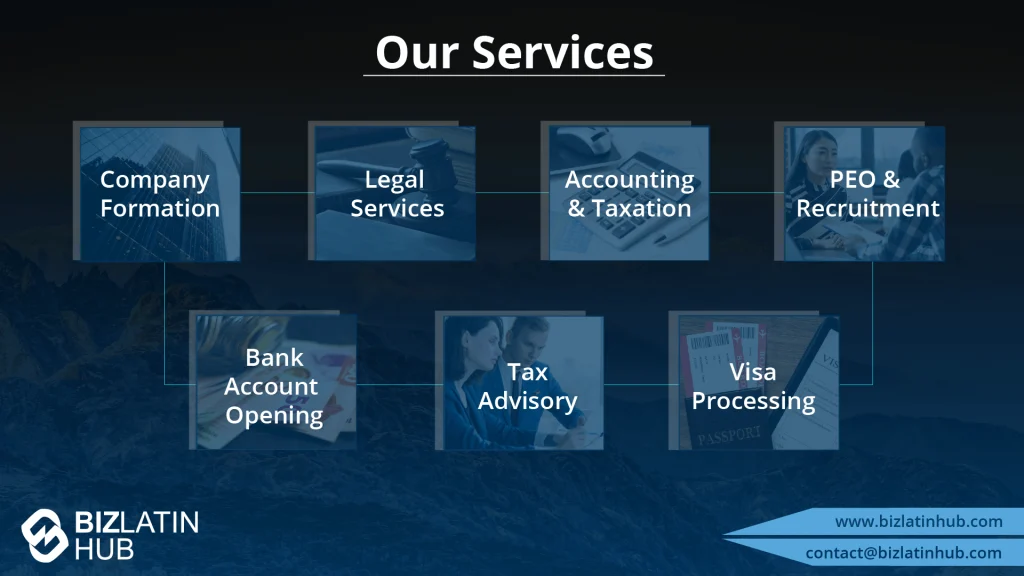In this article, we will underscore the myriad of benefits nearshoring in Brazil offers, particularly for the IT and tech sectors. Additionally, we’ll delve into the crucial questions that businesses need to address before embarking operating in the country, such as the necessity for an employer of record in the country. By examining these key considerations, companies can make informed decisions and leverage the opportunities presented by nearshoring in Brazil for their strategic growth and success.
As the largest economy in Latin America, Brazil stands as a culturally diverse nation renowned for its abundant tech talent. Foreign direct investment (FDI) in Brazil has remained constant, ensuring its regional position as the largest beneficiary of FDI in the region. Despite a forecast of only 0.3 percent growth in 2023, Brazil’s GDP defied expectations, expanding by nearly three per cent in the same period. These compelling factors position nearshoring in Brazil as an attractive proposition for companies in 2024.

What does nearshoring mean for business?
Let’s define what nearshoring is. Nearshoring is a business strategy where a company moves some of its operations or processes to a nearby country, usually within the same region.
This approach is often used as an alternative to offshoring, where operations are moved to a more distant country. Nearshoring can help businesseses improve efficiency and productivity, while also maintaining a higher level of control and oversight over their operations.
5 Advantages of nearshoring in Brazil:
There are several advantages for your company to explore nearshoring in Brazil. Here are five excellent benefits of nearshoring.
- Low labor costs
- Time-zone alignment
- Skilled IT workforce
- Digital infrastructure
- Excellent return on investment
Below we will examine each of these Brazilian nearshoring benefits in more detail.
1. Low labor costs
Outsourcing can help businesses reduce costs and save time, ultimately leading to increased profit margins.
Developing and training an internal staff can be both expensive and time-consuming, particularly in nations with high labor and operating costs.
For example, an entry-level software developer in the US can expect to receive a salary close to USD$80,000 per year, while a Brazilian software developer doing the same job can expect to make around $60,000 Brazilian Reais per year (roughly USD$11,600). That equals to a potential cost saving of amounting to 85 percent.
In addition, nearshoring in Brazil offers a lower living cost compared to major cities in the United States or Europe.

2. Time-zone alignment
Brazilian workers have similar work hours to their counterparts in the United States, Mexico, and Canada.
Since Brazil shares such a time zone overlap with North America, there is a potential for up to eight hours of synchronous work. This enables seamless team collaboration and eliminates any delays in project completion.
It also makes Brazil the ideal place to set up a regional hub that can facilitate business operations across Latin America and the Caribbean.
3. Skilled IT workforce
Brazil’s IT industry is ranked number one in Latin America and thirteenth globally for outsourcing software development. This makes it an ideal location for nearshoring.
With its extensive connectivity, including direct flights to the US, nearshoring becomes not only convenient but necessary.
Brazil has over 400,000 software developers, indicating that businesses of any size and from any sector can likely find capable assistance to meet their specific requirements.
Beyond the 400,000 developers, the estimated overall number of people working in the IT sector in the country is around 2 million, widening the scope of the workforce and attracting foreign companies to invest in Brazil.
4. Digital infrastructure
Brazil has made great strides in enhancing its digital infrastructure, leading to a significant expansion in its IT outsourcing sector.
The country has more than 35 company accelerators and over 90 manufacturing parks, with Science and Technology Parks (STPs) driving innovation and research while supporting both social and economic development.
These STPs are home to numerous companies offering data generation services and cutting-edge virtual infrastructure, with Campinas near Sao Paulo emerging as a hub like Silicon Valley.
Brazil’s stringent intellectual property laws have resulted in minimal mentions of the country in relation to cybersecurity and IP.
5. Excellent return on investment
Nearshoring in Brazil presents a lucrative return on investment due to significant labor savings, access to a large pool of qualified tech workers, and improved efficiency resulting from the time zone crossover.
This fantastic ROI is why some of the world’s leading tech giants such as Microsoft, SAP, Google, and IBM have offices there.

FAQs on Nearshoring in Brazil
1. Is it difficult to find local talent in Brazil?
If finding employees in your current location is expensive or challenging, nearshoring in Brazil may be a cost-effective option. Working with a local partner can also save time and effort in recruitment.
2. What are the advantages and disadvantages of nearshoring?
The advantages of nearshoring include less expensive labor costs, avoidance of language barriers, cultural alignment, geographical proximity, and a similar time zone. However, there are also disadvantages. For instance, developing and qualifying a new strategic supplier entails high costs.
3. How to take advantage of nearshoring?
To take advantage of nearshoring, businesses can focus on the following aspects:
- Selecting the Right Location: Choose a country that offers a skilled workforce, cultural and language similarities, and a favorable business environment.
- Building strong relationships: Build strong working relationships with the nearshore team to streamline communication and collaboration.
- Leveraging Cost Benefits: Take advantage of the cost-effectiveness of nearshoring by outsourcing operations at a lower cost.
- Ensuring Quick Response Time: Utilize similar time zones to ensure quick communication and problem-solving.
- Utilizing Local Expertise: Leverage the skills and expertise of the local workforce to enhance business operations.
4. What industries benefit most from nearshoring in Brazil?
- Technology.
- Customer Services.
- Pharmaceuticals.
- Electronics Manufacturing.
5. Are there any time zone advantages when nearshoring in Brazil?
Yes, nearshoring in Brazil means you are on a similar time to much of North America
Biz Latin Hub can assist you with nearshoring in Brazil
At Biz Latin Hub, we offer comprehensive market entry and back-office solutions in Brazil, the rest of Latin America, and the Caribbean.
We specialize in a range of services, including nearshoring in Brazil, as well as hiring and PEO, accounting and taxation, company incorporation, and corporate legal advice.
Our offices are located in major cities across the region. In addition, we have established partnerships in numerous other markets, providing our clients with an extensive network of resources.
This extensive coverage makes us well-equipped to support market entry and cross-border operations across multiple countries.
Get in touch with us today to learn more about our services and how we can assist you with your business endeavors in Latin America and the Caribbean.






